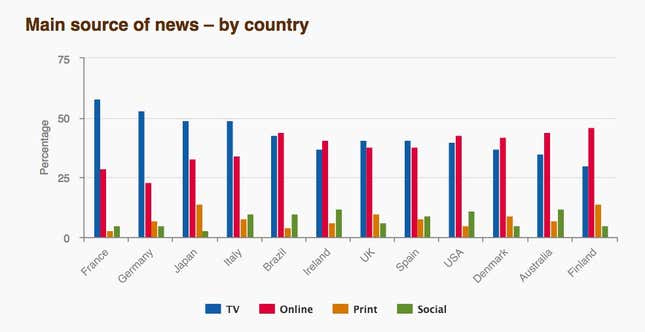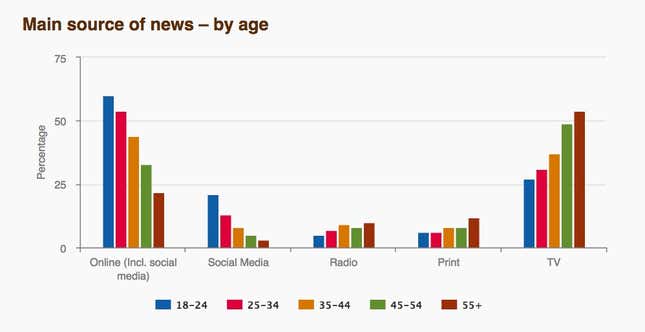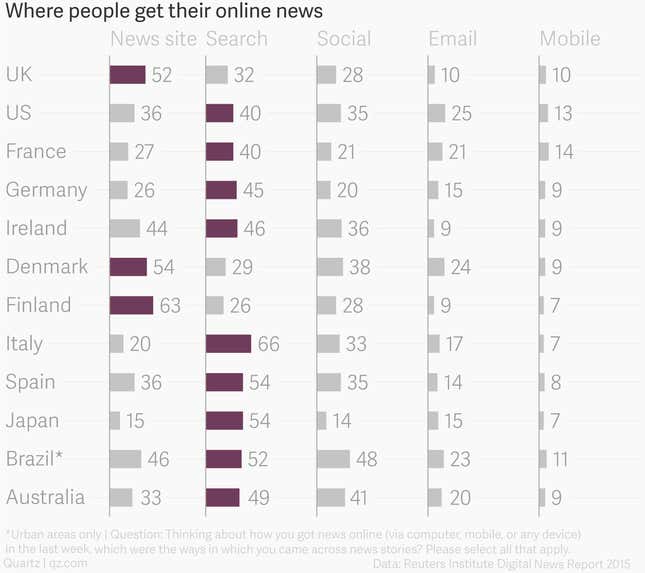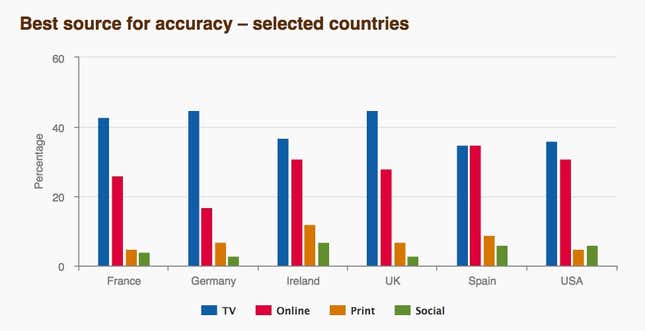It’s 2015. It should no longer surprise anyone that the news-consuming populations of the West are online and using smartphones. But that doesn’t actually tell us very much: Are people consuming news on websites or social networks? Is it in the form of text or visuals? What is the starting point: is it search, social, or a news website?
These are the important questions for news executives, policymakers, regulators, PR people, politicians, and just about anyone else who needs to understand where people get their information. The Reuters Institute for the Study of Journalism attempts to answer them in the latest edition of its annual digital news report (pdf), released this week.
Perhaps the most counterintuitive finding of the report, based on a survey of more than 20,000 people in 12 relatively wealthy countries, is that the vast majority of people across all ages still get most of their news from television.

Even the 18-24 demographic, much touted by messaging-app makers and social network executives as a hungry new audience, prefers TV news to news via social media.

Looked at either by age or by geography, the only category that comes close to TV is “online” But “online” is a curious mix of social and search, aggregator websites and news websites, video and text, podcasts and images. As Facebook and its like push users to video content, expect TV too to be bundled into “online.” The category is losing all meaning.
Much more revealing than whether people are online (they are) is what people do once they’re online. The Reuters study has an answer. Asked what the “starting point” is for news once they get online, respondents across the 12 countries surveyed have widely differing habits. Chiefly, however, they get their news from search and, in a few countries with prominent national news services such as the BBC or Yle, by going direct to news websites. Email and mobile alerts lag far behind.

That may have to do partly with the fact that people aren’t intentionally looking for news on Facebook, the social network on which some 40% of respondents say they nevertheless found news.
But it may also be an issue of trust:

